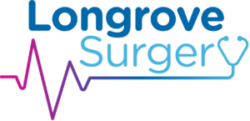What is an NHS Health Check?
The NHS Health Check is a sophisticated check of your heart health. Aimed at adults in England aged 40 to 74, it checks your vascular or circulatory health and works out your risk of developing some of the most disabling – but preventable – illnesses.
Think of your NHS Health Check as being your “midlife MOT”. It checks that some of your body’s most important systems are all running smoothly. Among other things, your blood pressure, cholesterol, and BMI will all be checked and your results given to you.
Crucially, your NHS Health Check can detect potential problems before they do real damage. Everyone is at risk of developing heart disease, stroke, type 2 diabetes, kidney disease and some forms of dementia. The good news is that these conditions can often be prevented.
Your NHS Health Check will assess your risk of developing these health problems and give you personalised advice on how to reduce it.
It’s free of charge, including any follow-up tests or appointments.
Why the NHS Health Check is important?
Thousands of people have already had an NHS Health Check. They are now armed with information and support to reduce their risk of developing heart and vascular problems. Why not join them?
Together, the vascular conditions identified by the NHS Health Check are the biggest cause of preventable deaths in the UK, affecting more than 4 million people.
Every year, the NHS Health Check is expected to help:
- save 650 lives
- prevent 1,600 heart attacks and strokes
- prevent 4,000 people from developing type 2 diabetes
- detect at least 20,000 cases of type 2 diabetes or kidney disease earlier
If you want to avoid being a statistic, making an appointment for an NHS Health Check as soon as you get your invitation.
How to get an NHS Health Check?
You’ll be invited for an NHS Health Check every five years if you are between 40 and 74 years old, as long as you don’t have an existing vascular condition.
Why wait for an invitation?
If you are between 40 and 74 years old, and don’t have an existing vascular condition, just pick up your telephone and call your surgery on 0203 805 7300 for and NHS Health Check appointment. If you are not free Monday to Friday, you can request for a Saturday AM appointment at one of our two HUBS near by.
What happens at the NHS Health Check?
At the check, you’ll be asked some questions about your lifestyle and family medical history. You’ll also have some routine tests. From these, your healthcare professional will be able to give you an idea of your risk of heart disease, stroke, kidney disease and type 2 diabetes. As well as a breakdown of your results, you’ll get an overall score giving your risk of getting heart disease or stroke. If you’re over 65, you will also be told the signs and symptoms of dementia, and you’ll be made aware of memory services nearby.
After your results have been explained, you’ll be offered personalised advice and support to help stay healthy, and lower your risk if any of your results need improving. This advice could include suggestions on small changes to your diet or how much exercise you should take if your risk is low or moderate.
If you are at higher risk, your healthcare professional might want to discuss whether you should be taking medicines to control your blood pressure or cholesterol, along with help to take action such as losing weight, becoming more active or stopping smoking.
By having a routine NHS Health Check for these conditions every five years, you can take action early and greatly improve your chance of a longer, healthier and happier life. You may be surprised how some small, long-lasting changes to your lifestyle can make a huge difference.
How the NHS Health Check will help?
Once you’ve had your NHS Health Check, you’ll have a good idea of what your risk is of developing heart disease, stroke, type 2 diabetes, kidney disease and certain types of dementia. There are some risk factors for these diseases that can’t be changed; for example, your risk increases with age. But there’s a lot you can do to reduce your risk. You can:
- maintain a healthy weight
- be physically active
- eat a healthy and balanced diet
- stop smoking
- cut down on alcohol
Your NHS Health Check will give you information and support to help you reach your health goals and enjoy a better quality of life. By acting to reduce your risk, you’ll have more chance of dodging the debilitating and potentially disabling effects of illnesses such as type 2 diabetes and stroke.
Further information can also be obtained from
